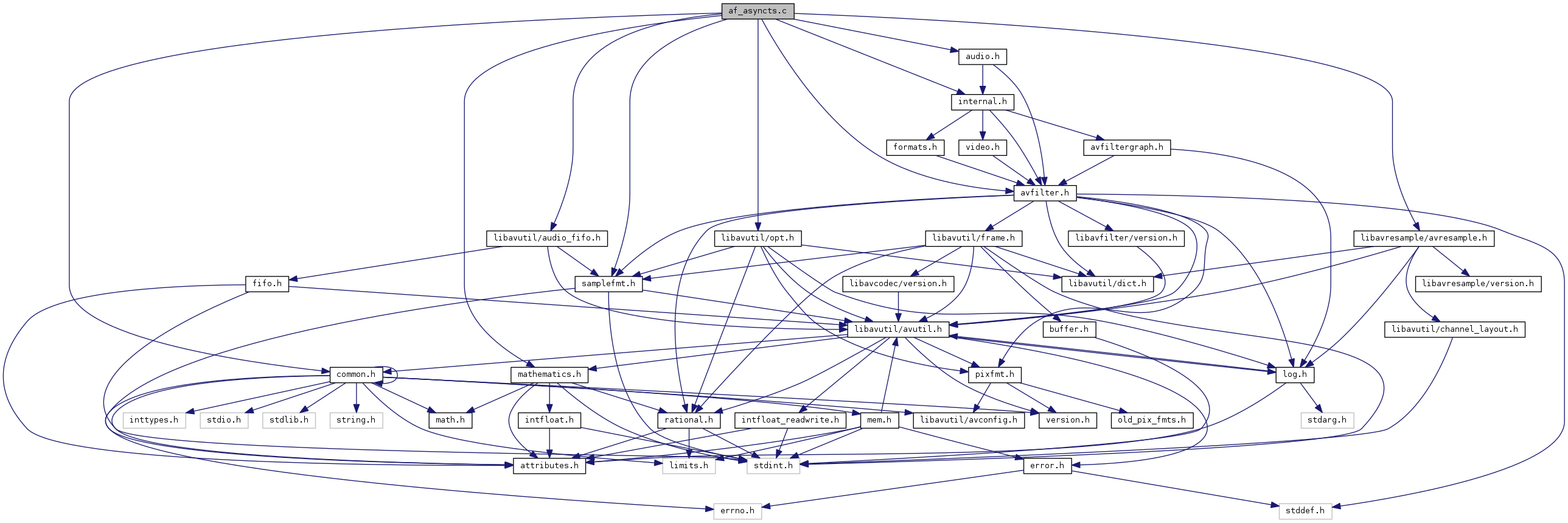Go to the source code of this file.
| AVFILTER_DEFINE_CLASS |
( |
asyncts |
| ) |
|
Initial value:= {
{ "min_delta", "Minimum difference between timestamps and audio data "
"(in seconds) to trigger padding/trimmin the data.",
OFFSET(min_delta_sec),
AV_OPT_TYPE_FLOAT, { .dbl = 0.1 }, 0, INT_MAX,
A|
F },
{
"max_comp",
"Maximum compensation in samples per second.",
OFFSET(max_comp),
AV_OPT_TYPE_INT, { .i64 = 500 }, 0, INT_MAX,
A|
F },
}
static int resample(ResampleContext *c, void *dst, const void *src, int *consumed, int src_size, int dst_size, int update_ctx)
#define AV_NOPTS_VALUE
Undefined timestamp value.
Definition at line 52 of file af_asyncts.c.
Initial value:= {
.name = "asyncts",
.priv_class = &asyncts_class,
}
static const AVFilterPad avfilter_af_asyncts_inputs[]
static const AVFilterPad outputs[]
struct ASyncContext ASyncContext
static int init(AVFilterContext *ctx)
static void uninit(AVFilterContext *ctx)
#define NULL_IF_CONFIG_SMALL(x)
Return NULL if CONFIG_SMALL is true, otherwise the argument without modification. ...
static const AVFilterPad avfilter_af_asyncts_outputs[]
these buffered frames must be flushed immediately if a new input produces new the filter must not call request_frame to get more It must just process the frame or queue it The task of requesting more frames is left to the filter s request_frame method or the application If a filter has several inputs
Definition at line 306 of file af_asyncts.c.
Initial value:= {
{
.name = "default",
},
}
static int filter_frame(AVFilterLink *inlink, AVFrame *buf)
Definition at line 287 of file af_asyncts.c.
Initial value:= {
{
.name = "default",
},
}
static int request_frame(AVFilterLink *link)
static int config_props(AVFilterLink *link)
Definition at line 296 of file af_asyncts.c.

 1.8.11
1.8.11